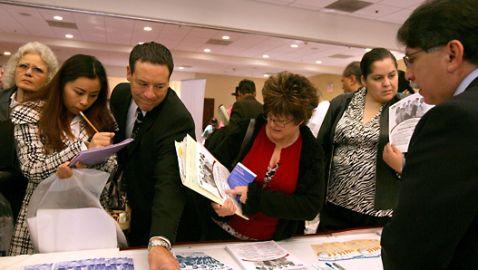How to Find a Job When You Are Over 50
Post Views 0Are you “of a certain age” and nosing around for new, more challenging employment? Well, be prepared to adopt some new strategies and make many attitude adjustments. The following tips will help you surmount the barriers that many experienced professionals encounter in today’s job market.
Be patient. Jobs for more experienced workers command higher salaries, but are less common and filled much more slowly than lower level positions. You may invest six months to two years to find and negotiate a position that will challenge and compensate you appropriately.
Don’t rest on past laurels. Many older workers expect that the degrees, professional association offices and successes they earned in their 30’s will translate into job offers in their 50’s. They won’t. You must show through fresh results that you’re still producing, still contributing, still learning. Make certain you can list recent achievements and contributions on your resume.
Modernize your resume. At the beginning of a career, employers evaluate how likely you are to succeed in their environment by how well you performed in school. Later, employers aren’t satisfied with potential; they want proof of past results. Today’s resumes, therefore, must show achievements, not simply recite history. Demonstrate the quality of your efforts by describing accomplishments, the more specific the better in terms of dollars, percentages, time saved or degree of complexity.
Use your contacts. Higher-paid, more responsible positions are seldom advertised or formally posted. Instead, they’re filled by word-of-mouth. Colleagues you’ve met along the way, and who now hold the power to hire, won’t know of your interest and availability for these jobs unless you tell them. Take advantage of a gold mine of opportunities by communicating your plans to all your professional contacts.
Do your homework. Employers aren’t as interested in what you’ve done in your career as in what you can do for them now. You can’t know how you can help unless you understand their business needs. That means gathering as much information as you can about their current operations, especially their problem areas. And never, never send a resume or walk into a personal meeting without having studied their website.
Prepare yourself for objections. Expect unspoken questions such as these: Can you take instruction from younger workers? Will your salary demands be too high? Are you planning to retire in the next few years, or do you have any illness or disability that will interfere with your performance? Then, show through actions–not merely words–that those objections aren’t true for you, or if they are, that they shouldn’t disqualify you. For example, you might respond to an interview question about your approach to problem solving by citing a situation in which you took instruction from a much younger colleague.
Be techno savvy. Twenty to 30 years ago, those with the most responsibility seldom performed any clerical tasks. Now, the more responsibility you have, the more wired you’re expected to be. Make sure you list an email address on your resume, and that your resume transmits clearly and attractively over the Internet.
By: Harrison Barnes, CEO of Granted
How to Find a Job When You Are Over 50 by Harrison Barnes



 Jobs in Payroll – Q & A about Payroll Jobs
Jobs in Payroll – Q & A about Payroll Jobs  The Dangers of Getting Jobs Through Friends and Family
The Dangers of Getting Jobs Through Friends and Family  How to Get Consulting Jobs and What it is Like Being a Consultant
How to Get Consulting Jobs and What it is Like Being a Consultant